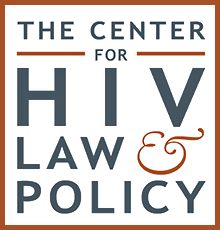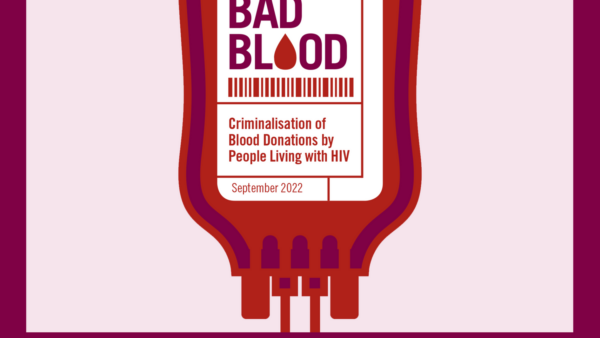Overview
North Carolina does not have any HIV-specific criminal laws, but it does regulate the activities of people living with HIV through control measures imposed under the Administrative Code. The regulations were modernised in 2018, restricting these controls largely to people who are not virally suppressed. General criminal provisions have also been applied to HIV ‘exposure’ cases.
The control measures were enacted in 1988 and originally prohibited people living with HIV from having sex without a condom and without disclosing their status to their partner. The regulations also prevented people living with HIV from donating organs, blood or other fluids, and prohibited the sharing of used syringes (see our report, Bad Blood, for a global analysis of the criminalisation of blood donations).
A bill ‘modernising’ North Carolina’s HIV regulations was enacted in 2018, making several changes but leaving other aspects of the control measures in place. This reform was spearheaded by local advocates such as the North Carolina AIDS Action Network, who had hoped for full repeal but remained pragmatic, aiming to reform the law as far as realistic in the southern state.
The new control measures retain the requirements to use condoms and disclose HIV status prior to sex, but these measures no longer apply to people living with HIV who are adhering to a treatment plan which has led to them being virally suppressed for at least six months. Additionally, condom use is no longer required for sexual intercourse with a partner living with HIV or taking PrEP. The revised regulations now also make clear that they don’t apply to people living with HIV who are the victims of sexual assault. The measures continue to restrict the sharing of used syringes and needles, but now only where they may be ‘contaminated with blood’, while the donation of organs for clinical research, or the harvesting of sperm/ova for the purposes of achieving pregnancy, are now permitted.
Additionally, the regulations now require people living with HIV to notify past sexual or needle-sharing partners of their status (either since date of diagnosis or in the previous 12 months), or share their contact details with the health authorities for notification. The regulations also require physicians to notify patients living with HIV of these control measures, advise them to notify all future sexual partners, and enables them to disclose the details of spouses for notification. Physicians are also required to notify the local health director if they have cause to believe that a patient living with HIV is not following the control measures, though what would warrant such ‘cause’ is not defined. The penalty for failure to comply with any of the control measures remains unchanged, being a misdemeanour with a penalty of up to two years’ imprisonment.
The 2018 reform is a positive step as it reduces the circumstances in which the control measures apply. However, basing the law on attainment of an undetectable viral load has caused the reform to be criticised for effectively criminalising those without access to adequate healthcare. Furthermore, the revised measures are still disproportionate in that they do not require an intention to transmit, nor a significant risk of transmission, nor for transmission to occur.
We are only aware of a few cases of prosecutions in North Carolina, which have occurred both under these administrative control measures and general criminal provisions. The offence of ‘felonious assault with a deadly weapon’ has been applied in cases of alleged HIV ‘exposure’, for example in a 2009 case in which a man allegedly attempted to ‘expose’ a police officer to his blood. More recently in 2024, a man was charged under this provision for allegedly failing to disclose his HIV status to a sexual partner, despite being on medication which meant HIV was not transmitted. He was ultimately sentenced to 60 days’ imprisonment with five years’ probation, which requires him to disclose his HIV status to any sexual partners. In this case the court accepted expert testimony which proved there was no risk of transmission due to his undetectable viral load, however it suggests that that despite the reform to the control measures, people who take precautions against HIV transmission are still liable to criminalisation if they don’t disclose their status. There have also been charges for attempted murder based on HIV status.
Finally, people living with HIV can be compelled to submit to medical exams, tests, and quarantine due to their health status, and medical records can be released to ‘protect public health’ or in accordance with a court order.
For a detailed analysis of HIV criminalisation in North Carolina, as well as all other US states, see the Center for HIV Law and Policy report, HIV Criminalisation in the United States: a Sourcebook on State and Federal HIV Criminal Law and Practice.
Laws
North Carolina Administrative Code § 41A.0202
Control Measures – HIV
The following are the control measures for the Human Immunodeficiency Virus (HIV) infection:
(1) Persons diagnosed with HIV infection (hereafter “person living with HIV”) shall:
(a) refrain from sexual intercourse unless condoms are used except when:
(i) the person living with HIV is in HIV care, is adherent with the treatment plan of the attending physician, and has been virally suppressed for at least 6 months (HIV levels below 200 copies per milliliter) at the time of sexual intercourse;
(ii) the sexual intercourse partner is HIV positive;
(iii) the sexual intercourse partner is taking HIV Pre-Exposure Prophylaxis (PrEP) – antiretroviral medication used to prevent HIV infection as directed by an attending physician; or
(iv) the sexual intercourse occurred in the context of a sexual assault in which the person living with HIV was the victim;
(b) not share needles or syringes, or any other drug-related equipment, paraphernalia, or works that may be contaminated with blood through previous use;
(c) not donate or sell blood, plasma, platelets, other blood products, semen, ova, tissues, organs, or breast milk, except when:
(i) The person living with HIV is donating organs as part of a clinical research study that has been approved by an institutional review board under the criteria, standards, and regulations described in 42 USC 274f-5(a) and (b);
or, if the United States Secretary of Health and Human Services determines under USC 274f-5(c) that participation in this clinical research is no longer warranted as a requirement for transplants, and the organ recipient is receiving the transplant under the criteria, standards, and regulations of USC 274f-5(c); or
(ii) Sperm or ova are harvested under the supervision of an attending physician to be used by the person’s spouse or partner for the purpose of achieving pregnancy.
(d) have a test for tuberculosis;
(e) notify future sexual intercourse partners of the infection, unless the person living with HIV meets the criteria listed in Sub-item (1)(a)(i) of this Rule. If the person living with HIV is the victim of a sexual assault, there is no requirement to notify the assailant;
(f) if the time of initial infection is known, notify persons who have been sexual intercourse or needle-sharing partners since the date of infection or give the names to a disease intervention specialist employed by the local health department or by the Division of Public Health for contact tracing and notification; and
(g) if the date of initial infection is unknown, notify persons who have been sexual intercourse or needle-sharing partners for the previous 12 months or give names to a disease intervention specialist employed by the local health department or by the Division of Public Health for contact tracing of all sexual and needle-sharing partners for the preceding 12 months.
(…)
North Carolina Statutes § 130A-144
Investigation and control measures
(a) The local health director shall investigate, as required by the Commission, cases of communicable diseases and communicable conditions reported to the local health director pursuant to this Article.
(b) Physicians, persons in charge of medical facilities or laboratories, and other persons shall, upon request and proper identification, permit a local health director or the State Health Director to examine, review, and obtain a copy of medical or other records in their possession or under their control which the State Health Director or a local health director determines pertain to the (i) diagnosis, treatment, or prevention of a communicable disease or communicable condition for a person infected, exposed, or reasonably suspected of being infected or exposed to such a disease or condition, or (ii) the investigation of a known or reasonably suspected outbreak of a communicable disease or communicable condition.
(c) A physician or a person in charge of a medical facility or laboratory who permits examination, review or copying of medical records pursuant to subsection (b) shall be immune from any civil or criminal liability that otherwise might be incurred or imposed as a result of complying with a request made pursuant to subsection (b).
(d) The attending physician shall give control measures prescribed by the Commission to a patient with a communicable disease or communicable condition and to patients reasonably suspected of being infected or exposed to such a disease or condition. The physician shall also give control measures to other individuals as required by rules adopted by the Commission.
(e) The local health director shall ensure that control measures prescribed by the Commission have been given to prevent the spread of all reportable communicable diseases or communicable conditions and any other communicable disease or communicable condition that represents a significant threat to the public health. The local health department shall provide, at no cost to the patient, the examination and treatment for tuberculosis disease and infection and for sexually transmitted diseases designated by the Commission.
(f) All persons shall comply with control measures, including submission to examinations and tests, prescribed by the Commission subject to the limitations of G.S. 130A-148.
North Carolina Statutes § 130A-25
Misdemeanor
(…)
b) A person convicted under this section for violation of G.S. 130A-144(f) or G.S. 130A-145 shall not be sentenced under Article 81B of Chapter 15A of the General Statutes but shall instead be sentenced to a term of imprisonment of no more than two years (…)
North Carolina Statutes § 14-32
Felonious assault with deadly weapon with intent to kill or inflicting serious injury
(a) Any person who assaults another person with a deadly weapon with intent to kill and inflicts serious injury shall be punished as a Class C felon.
(b) Any person who assaults another person with a deadly weapon and inflicts serious injury shall be punished as a Class E felon.
(c) Any person who assaults another person with a deadly weapon with intent to kill shall be punished as a Class E felon.
Further resources
Not all laws used to prosecute people living with HIV in this state are included on this page. For a comprehensive overview and analysis of HIV-related criminal and similar laws and policies, visit The Center for HIV Law and Policy




